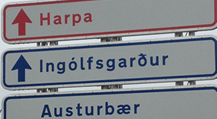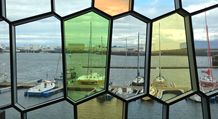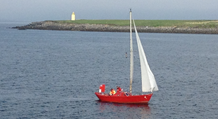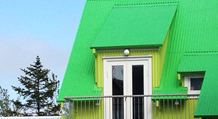Missing flash plugin. Download
here.
Address by Mrs Irina Bokova, Director-General of UNESCO
introduced by Nicoletta Calzolari and Khalid Choukri
on the occasion of the Language Resources and Evaluation Conference 2014
Reykjavík, 26 May 2014
Honourable former President of Iceland, Dear Vigdís,
Excellencies, Ladies and Gentlemen,
It is a great honour to address this Language Resources and Evaluation Conference, for which UNESCO is pleased to give its patronage.
We are here in Reykjavik and I believe Iceland is a living example of how a deep commitment to language is a healthy foundation for engaging in dialogue with others.
Languages are who we are: protecting this identity is a matter of human rights.
It is through language that we make sense of the world around us, that we can transform it for the better.
This starts on the benches of schools. It is why UNESCO works with governments to integrate Multilingual Education as a means to promote languages and quality learning.
Children should be taught in the language that is most natural for them to speak, not in one they cannot understand. The evidence is clear: the use of mother tongue in school can be a powerful cure against illiteracy.
In Latin America, we promote the Intercultural Bilingual Education approach, so that indigenous languages become important pedagogical resources.
In Asia-Pacific, we foster supportive polices to integrate mother tongue-based multilingual education into early learning.
The world’s most pressing challenges can only be solved collaboratively.
In today’s increasingly multicultural societies, speaking several languages is an asset – for working cross-culturally, for living together, for understanding each other.
Multilingualism is the foundation of global citizenship.
This is the core message of the International Decade for the Rapprochement of Cultures, led by UNESCO.
It is also the core purpose of the Vigdís International Centre for Multilingualism and Intercultural Understanding, which aims to become a leading institution to foster mutual respect. I wish to warmly commend Ms Vigdís Finnbogadóttir, our Goodwill Ambassador for Languages, who was also instrumental in the creation of UNESCO’s International Mother Language Day celebrated every 21 February.
It calls for stronger public policies to promote multilingualism as the pulse of cultural diversity.
UNESCO is determined to do so, notably through the Convention on the Protection and Promotion of the Diversity of Cultural Expressions, adopted in 2005.
A proverb in Marovo, a language of the Solomon Islands, says “Those who cannot name the good things of sea and land, cannot find them, cannot benefit from them and do not know how to look after them well.”
Artic indigenous people have developed an extremely sophisticated terminology to describe their environment and the effect of climate change. For example, there are some 120 Inupiaq terms for sea ice from Wales, Alaska, including almost 75 terms for types of ice conditions.
What a wealth of knowledge!
Each of the 6,000 languages spoken in the world contains its own wealth of knowledge: imagine what we could learn on climate change or biodiversity if we could only unlock this potential!
This is why we have built a Linguistic Diversity indicator as an integral part of the Biodiversity Indicators Partnership, and we say that biological diversity is the other side of cultural diversity: the two are closely linked.
We published the first book ever-written in Mayangna, a language spoken by the indigenous people from the Central American tropical rainforest, to document their knowledge on biodiversity.
We must develop far more of such tools, indicators and statistics, both offline and online.
It is not enough to invest in technology – we must invest in local content, in local languages, and give people not only the tools to access knowledge, but also the means to contribute to the enrichment of humankind, so that the digital divide does not deepen the language divide.
This is one key aspect of the work of the Broadband Commission for Digital Development.
Early on in my first term, I signed an agreement with ICANN, the organization that coordinates the Internet’s domain names system, making it possible for these names to be created in any alphabet.
Since then we have made available several new training materials on indigenous languages on the Open Training Platform - our Atlas of the World’s Languages in Danger is also accessible online.
Iceland has taken bold decisions to enrich online databases with content to improve the accuracy of online translation tools.
This is a lesson for all policy makers.
Here more than anywhere else, we understand that language is another word for culture.
In times of limits – of our resources, of our planet – this is our ultimate renewable resource: human ingenuity and this is the key to dialogue, creativity and sustainability.
This is the message of UNESCO and I believe it has never been so important.



















